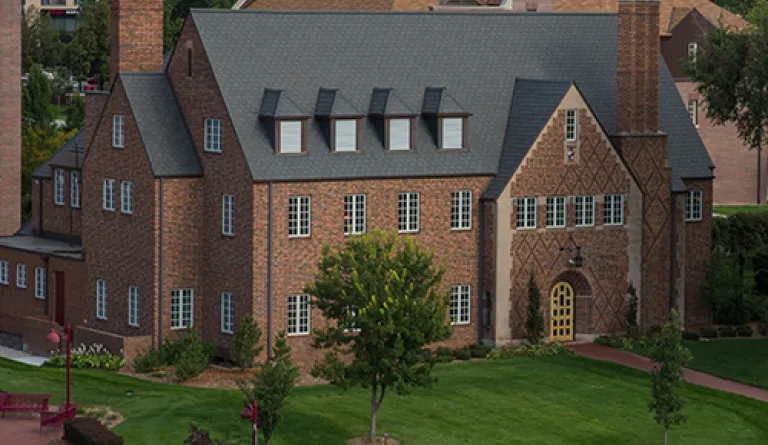IAALS Celebrates 10 Years of Rebuilding Justice

DENVER—This year marks the 10th anniversary of IAALS’ work to continuously improve America’s legal system and reestablish it as the aspirational model for justice globally. To mark this milestone, IAALS celebrates both its accomplishments and its bright future, all while tackling the most critical issues of the day. Having a trusted and trustworthy legal system is essential to our democracy, our economy, and our freedom. IAALS staff, founders, partners, sponsors, and advisors all recognize that to earn that trust, the legal system must be just, impartial, and responsive.
“In just 10 short years, IAALS has come a very long way—further than I ever thought possible,” said Daniel Ritchie, Chancellor Emeritus of the University of Denver and a founder of IAALS. “Together with a national network of partners, IAALS is rebuilding a better-functioning and more trustworthy civil justice system.”
“This year, we celebrate ten years of IAALS and ten years of work rebuilding justice across the United States. Creating meaningful change in the legal system is a movement, drawing in people across the country,” said IAALS Executive Director and former Colorado Supreme Court Justice Rebecca Love Kourlis. “IAALS’ evolution and growth over the years has been remarkable, and are testaments to our partners and to our unique, pioneering model.”
IAALS Board member and Visiting Fellow at the Brookings Institution, Russell Wheeler, declared, “America’s judiciaries need trustworthy, impartial sources of information and analysis. IAALS contributes important empirical assessments of the American legal system, and offers tested solutions to benefit our courts and those who use them.”
A snapshot of IAALS’ marquee accomplishments include:
- Partnering with U.S. Supreme Court Justice Sandra Day O’Connor (Ret.) as her legacy project to ensure judicial independence and publication of the O’Connor Judicial Selection Plan.
- Opening the first-of-its-kind Center for Out-of-Court Divorce which is providing a much-needed alternative for families to get the services they need.
- Creating momentum for rules change and culture change at both the state and federal levels.
- Assisting state legislatures and governors with judicial selection and evaluation models, focusing on an independent, apolitical, and accountable judiciary.
- Providing much-needed education and recommendations for judges and courts about managing e-discovery.
- Hosting the premiere Civil Justice Reform Summit series, drawing the who’s who of national leaders.
- Driving collaboration among law schools and educators to pursue reform in legal education.
- Providing a voice for self-represented litigants about their experiences in the legal system without an attorney, to help inform courts and improve services.
- Offering key insights, trainings, and recommendations for states on judicial performance evaluation.
- Assisting state and federal courts with docket management and ways to improve case flow effectiveness.
- Surveying legal professionals to learn what foundations entry level lawyers need to succeed, in order to inform legal education and hiring practices.
- Sparking innovation and pilot testing of court process improvements in several states, including Texas, Utah, New Hampshire, Colorado, and Oregon.
In wishing IAALS a happy 10th, Justice Sandra Day O’Connor proclaimed, “IAALS serves a very important purpose in its commitment to judicial selection methods that preserve impartiality and build public trust and confidence. I am proud to work with them.”
New Hampshire Supreme Court Chief Justice John Broderick (Ret.) offered his congratulations proclaiming, “I cannot imagine a world without IAALS.”
IAALS has come a long way in the last decade; however, there is still ground to cover. Together, IAALS and our partners are rebuilding justice in four key areas. Quality Judges identifies and recommends empirically based models for choosing, evaluating, and retaining judges that preserve impartiality and promote accountability. Rule One identifies and recommends court processes and procedures that provide greater access, efficiency, and accountability. Honoring Families identifies and recommends dignified and fair processes for the resolution of divorce, separation, and custody in a manner that is more accessible and more responsive to children, parents, and families. Educating Tomorrow’s Lawyers identifies innovative models of legal education that align legal education with the needs of an evolving profession.
